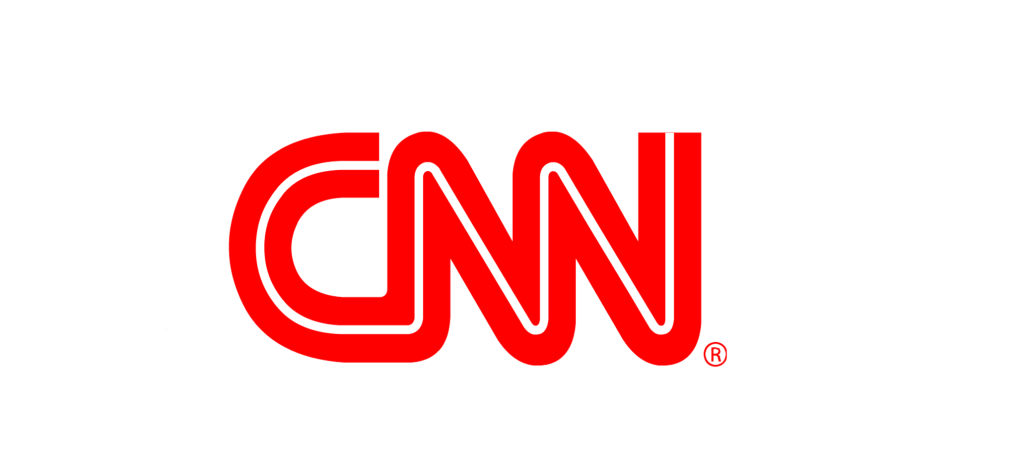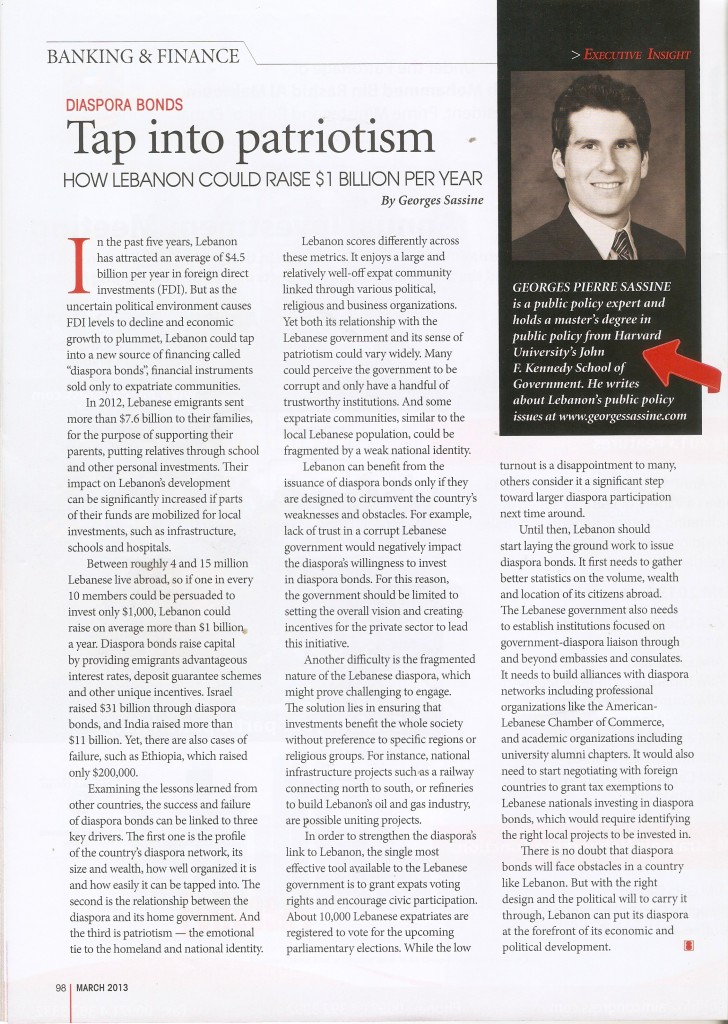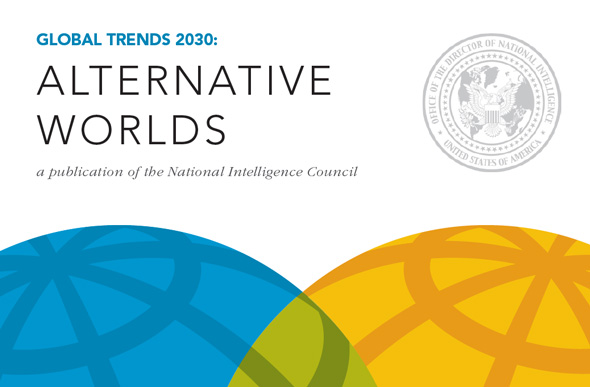By Georges Pierre Sassine
A version of this article appeared in the print edition of The Daily Star on December 12, 2011, on page 7.
Migration is often viewed as a form of brain drain rather than an opportunity. But several countries have recently recognized the potential contribution that their diaspora make to economic development.
Lebanon can improve its efforts to tap the resources of its diaspora and further expand its economy. Already, more than $8 billion were sent by Lebanese emigrants to their families at home in 2010. This constitutes more than 20 percent of Lebanon’s GDP, and is almost double Lebanon’s export revenues. Yet despite these large contributions, Lebanon continues to be crippled by its $58 billion public debt and is in dire need to further grow its economy. The country should adopt a comprehensive plan that significantly increases the diaspora’s impact on Lebanon’s development, increases the country’s wealth, and saves money at the same time.
The three step strategy includes, first, encouraging local investments; second, reducing international money transfer fees; and third, engaging the Lebanese diaspora community.
The first initiative is to mobilize diaspora funds for investments in Lebanon. Estimates of the numbers for the Lebanese diaspora vary between 4 and 15 million members. If one in every 10 members could be persuaded to invest $1,000, Lebanon could raise on average more than $1 billion a year. Lebanese diaspora funds represent a massive untapped potential and there are many ways to raise this capital, including diaspora bonds and other investment vehicles.
Lebanon can further tap the resources of its diaspora to expand its economy … Lebanon could raise on average more than $1 billion a year through Diaspora Bonds.Georges Sassine
A diaspora bond is a special bond that can be introduced by a domestic financial institution. It would provide emigrants with premium interest rates, deposit guarantee schemes, and other unique incentives. Investments would target projects of interest to emigrants, such as schools, housing, hospitals and other projects that benefit their families and community back in Lebanon.
India, for example, successfully raised more than $11 billion through diaspora bonds. It’s been proved an effective tool.
A second priority is to encourage Lebanese migrants to send more money home by reducing transfer fees. Money transfers to Lebanon are expensive, and cost on average more than $28 to send $200, compared to $5 from the United Arab Emirates to Pakistan. There are many policy options to reduce remittance fees by encouraging greater competition and promoting innovative money transfer technologies.
For example, following from the General Principles for International Remittance Services, compiled by the World Bank and the Bank for International Settlements, the Lebanese government should discourage exclusive partnerships between banks and international money transfer agencies which would lead to lower fees.
Another very effective way to decrease prices is to encourage new money-transfer technologies. Instead of sending money through traditional channels, remittances can be sent by cell phone text messages or other Internet-based payment platforms. Costs will go down as these channels reduce the need to build costly distribution networks and increase competition with traditional markets. Many companies have been successful in mobile banking including MTN Mobile Banking and Wizzit in South Africa, M-Pesa in Kenya, and G-cash, ARYTY and SMARTmoney in the Philippines.
Investments should benefit the whole society without preference to specific regions or religious groups.Georges Sassine
The third focus should be on strengthening emigrants’ link to Lebanon. Experts agree that a government can successfully and sustainably extract obligations from its diaspora only if it extends them rights. The single most effective tool available of the Lebanese government is granting Lebanese emigrants voting rights and encouraging their civic participation.
Parliament passed a law in 2008 allowing emigrants to vote in the 2013 legislative elections. A similar proposal was delayed for the 2009 elections for logistical reasons and the limited timeframe involved. However, diaspora voting may be feasible next time around. Logistical barriers are being addressed by the government and electoral reform consultations are being tackled ahead of time. Egypt and Iraq recently succeeded in setting up out-of-country voting systems in relatively short timeframes, and Lebanon can follow suit.
In addition, risks to implementing this three-point plan should be expected in a highly politicized country like Lebanon. However, they can be circumvented. For example, lack of trust in a corrupt Lebanese government might negatively impact the diaspora’s willingness to invest in diaspora bonds. For this reason the Lebanese government should be limited to setting the overall vision and creating incentives for the private sector to lead this initiative.
Another difficulty is the fragmented and divided nature of the Lebanese diaspora, which might prove challenging to engage. The solution lies in ensuring that investments benefit the whole society without preference to specific regions or religious groups. For instance, national infrastructure projects such as a railway connecting north to south, or refineries to build Lebanon’s oil and gas industry, are possible uniting projects.
Overall, the economic benefits of this plan outweigh the obstacles and should allow for the harnessing of political will required to carry it through. Lebanon can put its diaspora at the forefront of its economic and political development. The potential is enormous, the risks manageable, and the opportunity within our reach.
Georges Pierre Sassine is a public policy expert and Harvard University alumnus. He wrote this commentary for THE DAILY STAR.
A version of this article appeared in the print edition of The Daily Star on December 12, 2011, on page 7.
(The Daily Star: Lebanon News: http://www.dailystar.com.lb)



